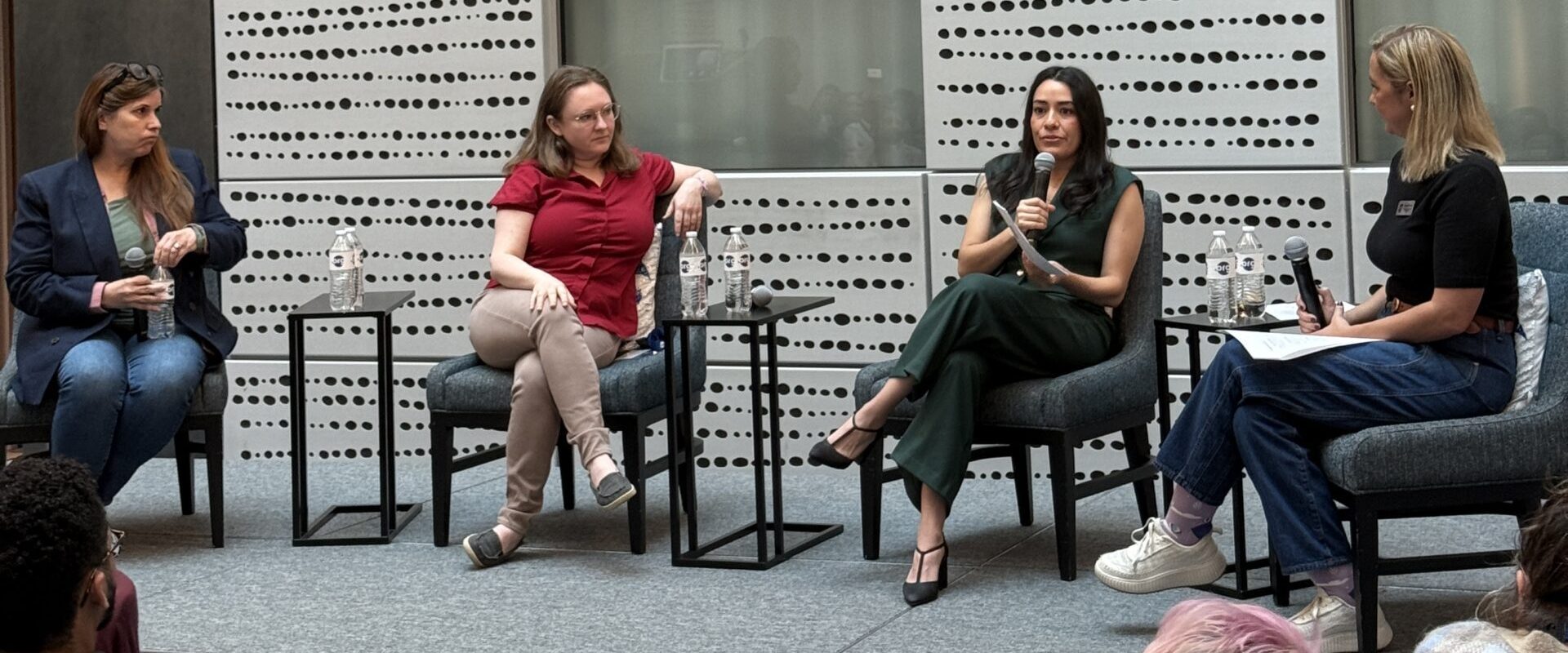
As School the World works toward our Moonshot 2030 goal of serving 84,000+ children across multiple countries, we’re investing deliberately in three critical areas: cross-organizational partnerships, multi-sector collaboration, and technological innovation. Over the past two weeks, three members of our leadership team represented School the World at key events that showcased exactly how we’re building the infrastructure needed to scale our impact with intention.
Beatriz Zamora, our Director of Partnerships and Donor Relations, represented School the World at the inaugural .ORG Community Exchange hosted by Public Interest Registry. As a panelist on “Power in Partnership: Building Stronger Communities Together,” Beatriz shared insights from our newest partnership with the Yellow Boat of Hope Foundation in the Philippines—our first expansion beyond Central America.
This partnership demonstrates what’s possible when organizations bring complementary strengths to the table and trust each other to lead in their respective domains. Rather than simply replicating our model, we worked with Yellow Boat of Hope to adapt it, honoring their community-led approach to selecting schools and mobilizing families. A formal MOU has helped ensure smooth implementation by clearly delineating construction, compliance, staffing, and programming responsibilities.
From constructing classrooms and onboarding local staff to preparing for our signature parent empowerment and teacher training programs, this partnership is already proving how scalable—and adaptable—our holistic education model can be when it’s rooted in community.
Bianca Argueta, our Regional Director of Programs, attended the 2025 Central America Donors Forum (CADF) in Guatemala City—a gathering of donors, NGOs, foundations, private sector leaders, and government actors committed to creating a more just and equitable Central America.
Bianca participated in a collaborative workshop titled “Strengthening Collaboration to Sustain Civil Society in Education,” where she led dialogue on NGO-government collaboration. She shared School the World’s experience co-investing in school construction with municipalities and participating in the Voces para la Educación initiative—a collective effort to strengthen public education in coordination with Guatemala’s Ministry of Education.
The forum reinforced that while NGOs play a vital role in upholding the right to education, governments remain its primary guarantors. Sustained impact requires mutual accountability, a shared vision, and consistent dialogue among funders, implementers, and government. Clear agreements and boundaries are essential when working across sectors to ensure roles are understood and respected.
Danilo Ac, our Regional Manager of Monitoring & Evaluation, attended Python Exposition Day at Universidad del Valle de Guatemala—a gathering of professionals and students exploring data science, automation, and AI-driven solutions.
While the event was primarily geared toward professionals in finance, industry, and tech rather than NGOs, we see this as a strength. Learning from how the private sector uses data and AI pushes us to think bigger about what’s possible in the nonprofit space. Danilo joined sessions on data integrity, machine learning, and data visualization with PowerBI, as well as a hands-on workshop on automation using n8n—a no-code tool gaining traction across industries.
His training is part of our ongoing investment in building a more standardized, scalable M&E infrastructure—one that will help us track progress, demonstrate impact, and make data-driven decisions as we grow.
These three experiences represent more than professional development opportunities. They’re strategic investments in the systems, relationships, and tools we need to achieve Moonshot 2030. Scaling impact isn’t just about doing more—it’s about doing it smarter, in partnership, and with the innovation required to meet the complexity of the challenge ahead.